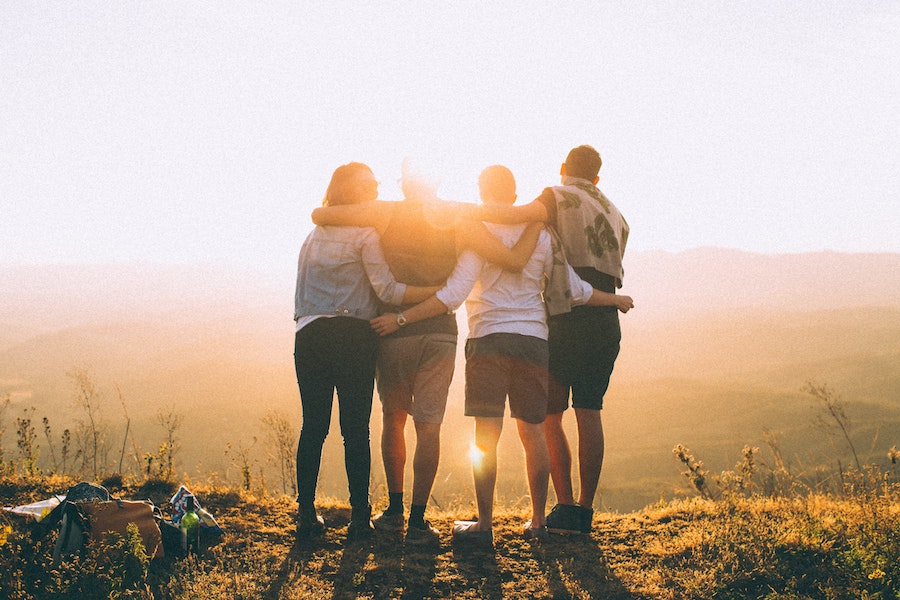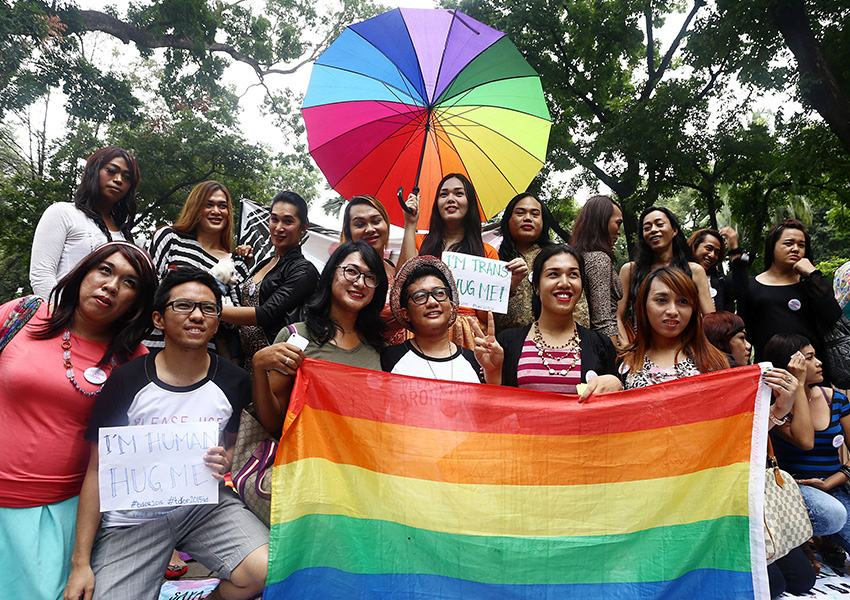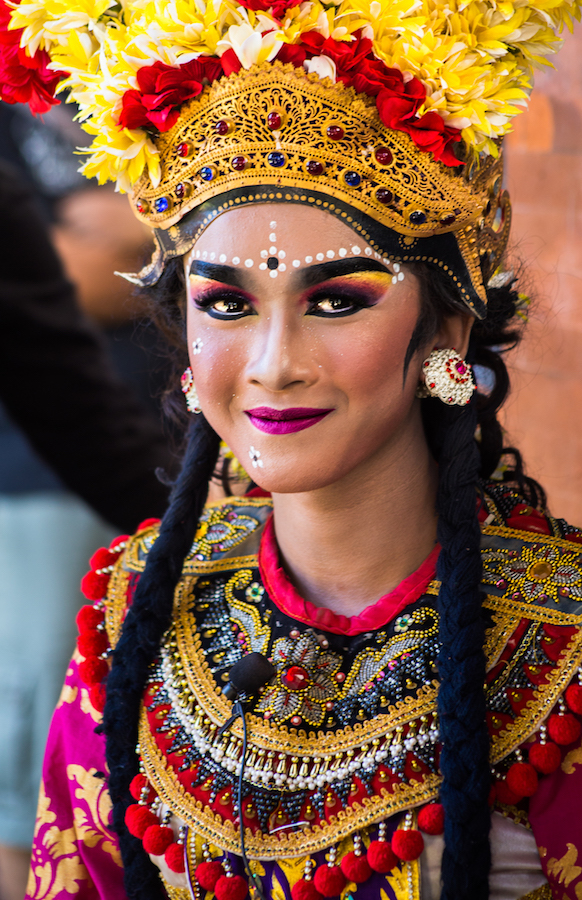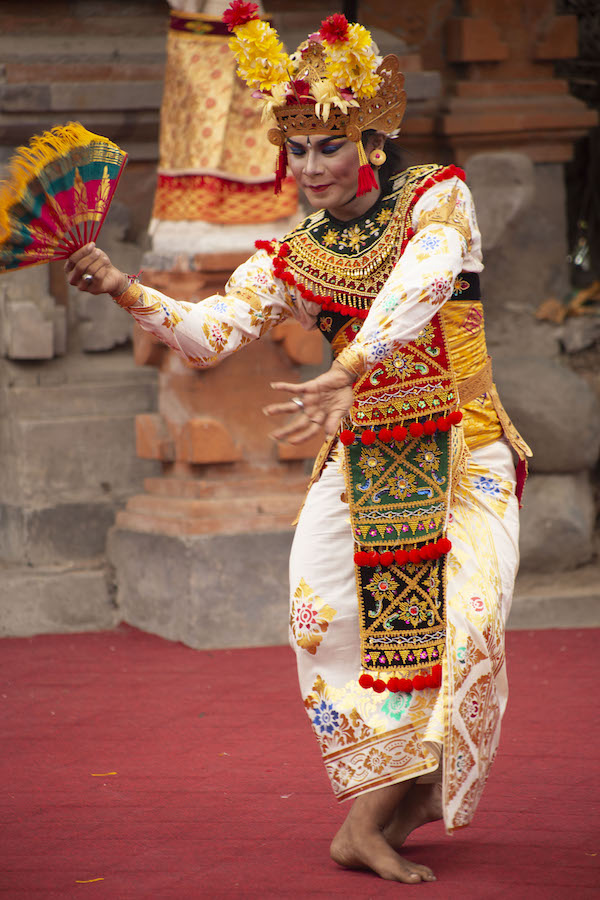Bali’s identity as a beautiful, tolerant and welcoming island is renowned across the globe, an island that is rich in culture and history where diversity is celebrated. Each year, the island attracts millions of visitors from all corners of the world looking to experience a taste of paradise, this includes many LGBTQ+ travellers. So, in a Muslim-majority country, why is it that Bali is perceived as a haven for LGBTQ+ travellers? And is it really?
Bali’s stunning landscapes, jaw-dropping beaches, welcoming people, and add to that a scene friendly to the normally marginalised communitieshas madeBalia destination for gay travellers. It is known as an island of peace, where the people are welcoming and diversity is embraced, but in a country with approximately 87% Muslim citizens, what is it about Bali that makes queer travellers feel comfortable to be themselves on the island? To understand this a little bit better, we need to look at the background of LGBTQ+ issues in Indonesia.

In a country where the majority of its residents are Muslim, Indonesia’s past reputation as a relatively moderate Muslim country has shifted in the 21st century. Indonesia has actually become more conservative and less tolerant towards the LGBTQ+ community, with growing hostility and discrimination coming from various groups.
In Indonesia, LGBTQ+ people do not have the same rights and privileges as opposite-sex couples and heterosexual individuals. However, the majority of Indonesia does not enact a sodomy law and has no laws that criminalise private gay acts, except for several provinces. At the same time, they also do not have laws protecting the LGBTQ+ community from discrimination and hate crimes. Several provinces such as Aceh enact the Islamic Sharia law in which homosexuality is deemed illegal and punishable by flogging.

While the idea of homosexuality is still largely unaccepted and considered a taboo subject, the transgender identity has been part of Indonesian culture and society for many years and is generally more accepted. Transgender people in Indonesia are allowed to legally change their gender on official documents by undergoing sex reassignment surgery and getting judicial approval. So, despite the country’s LGBTQ+ issues and almost non-existent rights for the LGBTQ+ community, what is it that makes the island of Bali the go-to destination for global LGBTQ+ travellers?
You might ask yourself “Why are the Balinese such peaceful people?” Well, Bali is made up of predominantly Balinese Hindus, where their way of life is guided by the traditional philosophy of the Tri Hita Karana, which roughly translates to the “three causes of well-being”. These three principles teach them to be in harmony with God, in harmony with other people, and harmony with nature or the environment. These basic principles teach the Balinese people to live a peaceful life in general, to live in harmony with everyone and everything, and to be kind and compassionate, regardless of race, religion, gender, age and sexual orientation. So, it shouldn’t surprise you how welcoming the people are from the moment you step foot in Bali for the first time.

If you’re familiar with Bali’s LGBTQ+ scene, then you’ll know that the Seminyak area is the most popular area for LGBTQ+ travellers, specifically Camplung Tanduk street (formerly Dhyana Pura street), where you’ll find a row of gay-friendly bars that are almost always crowded during the weekends. Here you’ll find a fun night out with wild drag performances putting on a regular schedule of highly entertaining shows during the evenings. Drag queens or drag performers are typically men who put on drag attire and makeup for entertainment purposes. The drag performers you’ll find in the bars of Bali usually take on a celebrity persona, impersonating famous singers such as Beyoncé, Lady Gaga, Rihanna and many more.
The concept of drag is not entirely new to Bali, as the history of cross-dressing has been a part of Indonesian culture and history as early as the 14th century. It was alleged that Hayam Wuruk, a 14th-century ruler, used to don female attire and used a female name. The concept of crossdressing in contemporary culture can still be seen today, where the roles of females are played by male performers. Didik Nini Thowok, a gender-bending master of the traditional Javanese dances, is credited for popularising the cross-dressing performance arts in contemporary Indonesia.
In Bali itself, there have been many dance and drama ensembles that have historically selected males in female roles, or occasionally vice versa. In the late 19th century, the Arja was established, a Balinese folk-opera which originally had an all-male cast, even in female roles. Beginning in the 20th century, all performers were female including for the male roles. During the late 20th century, a contemporary form of Arja was formed called Arja Muani, an all-male troupe in which the female roles are also played by the men. Arja Muani was welcomed with great enthusiasm by the public, especially for its refreshing comedy. Moreover, Arja Muani tackles traditional gender norms and creates a counter-dialogue to common gender notions mainly by reverting to the traditional Arja form of cross-dressing performance. Another dance, pictured here, is the Gandrung, where male dancers don the dress similar to that of the female Legong dance attire.


According to G.G. Bolich in his book, Transgender History & Geography: Crossdressing in Context vol. 4, “The historic role of males in female parts in Indonesia dance and drama has had such wide acceptance that Sukarno, the first president of the modern independent nation, showed no hesitation in his autobiography of recounting in detail his own days as a young man embodying female roles as an entertainer.”
And then there are long-standing organisations like the Gaya Dewata Foundation, a non-governmental organisation that provides a safe space for the LGBTQ+ community through healthcare and educational support. The Gaya Dewata Foundation is engaged in the health field, specifically in risk prevention of sexually transmitted infections (STI) and HIV/AIDS for the LGBTQ+ community as well as counselling for LGBTQ+ people living with HIV/AIDS in Bali. The Gaya Dewata Foundation was established on February 14, 1992, by a group of LGBT individuals in Bali and facilitated by the Citra Usadha Indonesia Foundation (YCUI).
Since July 1999, it has separated from YCUI and has become an independent foundation. From 2000 until 2015, the foundation received funding from Australia Aid (AusAID) for HIV prevention programs in the LGBTQ+ community. The foundation was registered on a notarial deed as of June 23, 2009, as well as at the Indonesian Department of Law & Human Rights on August 21, 2009. It is organisations like these that, in addition to providing support for the LGBTQ+ community, also help create and build awareness on LGBTQ+ topics and issues within the Balinese community.
While yes, the island of Bali champions tolerance and peace, where the people are compassionate and accepts diversity, it goes without saying that LGBTQ+ visitors, however, should still keep the local culture and traditions in mind. Sexuality and intimacy are not things that Indonesians talk openly about, and public displays of affection, in general, are something that is frowned upon, regardless of your sexual preferences, even in Bali. Even though Bali may seem like a progressive island, it is still part of a larger country in which the views on LGBTQ+ matters are still very much conservative and not as progressive as the far more accepting Western countries.
With that being said, is Bali a haven for LGBTQ+ travellers?
It certainly is, for the most part. Although not outright pro-LGBTQ+, Bali is far more accepting and tolerant towards the LGBTQ+ community than the rest of Indonesia. The warm and welcoming Balinese community is a reflection of the Tri Hita Karana philosophy, which is one of the reasons Bali attracts so many visitors from all across the globe, in addition to its beauty, of course. It provides a sanctuary where LGBTQ+ travellers can enjoy a memorable vacation without judgment and discrimination. We can all learn a thing or two from the Tri Hita Karana philosophy and apply it to our everyday lives so that we can all live harmoniously with one another.









